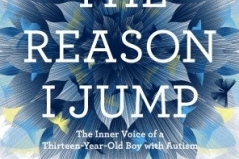Are voters rational?

keywords:
voting / rationality / political psychology
Are voters rational?
Are voters rational? As a part of a three-part series on the subject of voter rationality, my colleagues Matt Motyl, Mark Brandt, and I will discuss some theories and research dealing with voters’ attitudes and behaviors. We hope you will stay a part of the conversation with us! / more
Everyone is prejudiced, too
keywords:
politics / prejudice / liberals / conservatives
Everyone is prejudiced, too
In this blog post, I will discuss new research in political psychology that is changing our understanding of what prejudice is, and who is prejudiced. / more
Re-thinking how we think about conformity
keywords:
cross-cultural psychology / socio-ecological approach / relational mobility / culture / pen choice / open and closed cultures
Re-thinking how we think about conformity
In this post, I recount part of my journey into the nitty-gritty of cross-cultural differences in behavior. More specifically, I discuss the link between skateboarding across the USA, attractive Japanese women in tights, and the paradoxical nuances in conformity between cultures. / more
Does parental disapproval lead to love or dissolution? The Romeo and Juliet effect vs. the social network effect
keywords:
social networks / influence / Romeo and Juliet / disapproval / defiance / destiny / romantic relationship / love / family / friendship
Does parental disapproval lead to love or dissolution? The Romeo and Juliet effect vs. the social network effect
In this post, I assert that two opposing theories about how opinions friends and family hold affect one’s romantic relationship (Romeo and Juliet effect vs. social network effect) can actually coexist. Though there is little empirical support for the Romeo and Juliet effect, current research demonstrates that this effect may exist in certain circumstances. / more
The good, the bad, and the ugly of the Dove Campaign for Real Beauty
keywords:
advertising / body image / self-esteem / social comparison / cognitive dissonance
The good, the bad, and the ugly of the Dove Campaign for Real Beauty
The Dove Campaign for Real Beauty has been called a lot of things, from a “game changer” and “a breath of fresh air”, to “hypocritical”, “sexist”, and “sneaky”. So why has the campaign, whose major innovation was to use ads that featured real women rather than airbrushed models or celebrity spokespersons, sparked so much controversy? Taking a social psychological perspective, this article attempts to address the good, the bad, and possibly even the ugly side of Dove’s Campaign for... / more
Everyone is biased
keywords:
politics / bias / psychological rigidity / liberals / conservatives / right-wing authoritarianism
Everyone is biased
My first blog post tells the story of my discovery of the conditions that reveal the political biases of liberals and conservatives. It’s also a story of coming to terms with my own biases. / more
After Trayvon: The science of protecting innocent black men
keywords:
Trayvon Martin / prejudice / stereotypes / IAT / in-group / out-group
After Trayvon: The science of protecting innocent black men
Even though the death of Trayvon Martin drew much public attention in the last year and a half, the shooting of an unarmed, innocent black male is in no way an isolated case in America. Jonathan Ferrell, a 24-year-old African-American man in Florida, was recently killed by police officers when he was looking for help after crashing his car. Roy Middleton, a 60-year-old Florida man, was crippled after the sheriff’s deputies mistook him for a car thief and shot him... / more
The curse of lovely: How to break free from the demands of others and learn to say no
The curse of lovely: How to break free from the demands of others and learn to say no
Reading a self-help book is like talking to a stranger in a bar – you either identify with the person’s story immediately and feel like you can talk the whole night or you don’t, which is when you try to move to another table. Regarding Jacqui Marson’s book “The Curse of Lovely” I felt similar. After reading the first chapter I couldn’t fully identify myself with the author’s personal story so I was tempted to classify the book as “not for me”. And as can happen in a bar, when a person you didn’t like at first becomes a friend, my first impression of “The Curse of Lovely” turned out to be wrong after I continued reading it for a while. I found myself identifying with the problems and nodding approvingly more and more often. / more
Why do we sometimes enjoy the misfortune of others?
keywords:
misfortune / schadenfreude / emotion / envy / self-enhancement
Why do we sometimes enjoy the misfortune of others?
Have you ever been in a situation where you couldn’t resist a little smile when someone else had a setback? Have you ever experienced joy when another person suffered a mishap? We’ve all probably been in that situation and we’ve all felt that joy. The German language coined the word Schadenfreude—a compound word of the German words 'Schaden' meaning 'harm' and 'Freude' meaning 'joy'—for the pleasure at the misfortunes of others and nowadays it is used as a... / more
The reason I jump: The inner voice of a thirteen-year-old boy with autism by Naoki Higashida
The reason I jump: The inner voice of a thirteen-year-old boy with autism by Naoki Higashida
The concept of this book The Reason I Jump: The inner voice of a thirteen-year-old boy with autism by Naoki Higashida is based on a fascinating idea. A 13-year-old boy with autism answers questions about his inner life that the outer world wants to know to understand autism better. The book was first published in Japanese in 2007, and translated into English in 2013. / more


